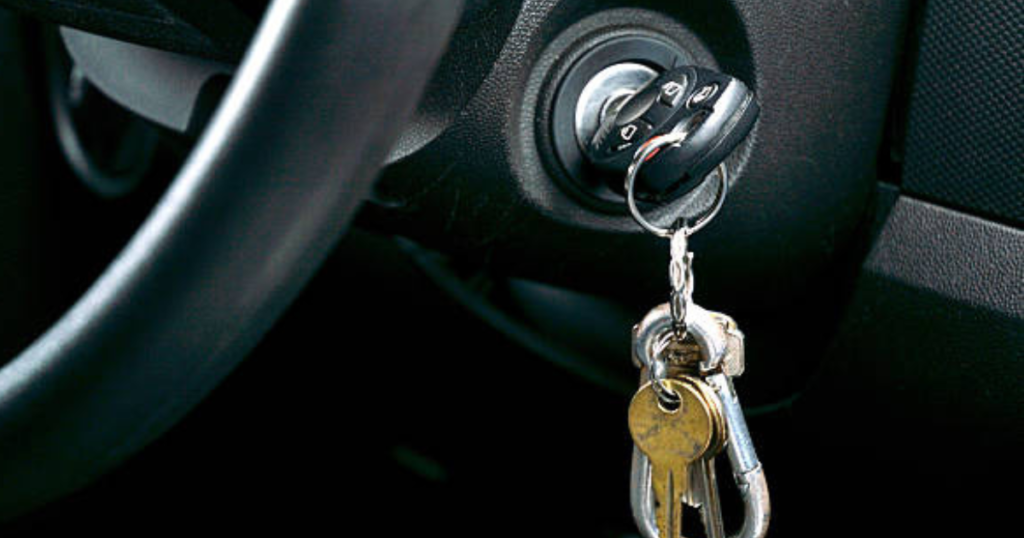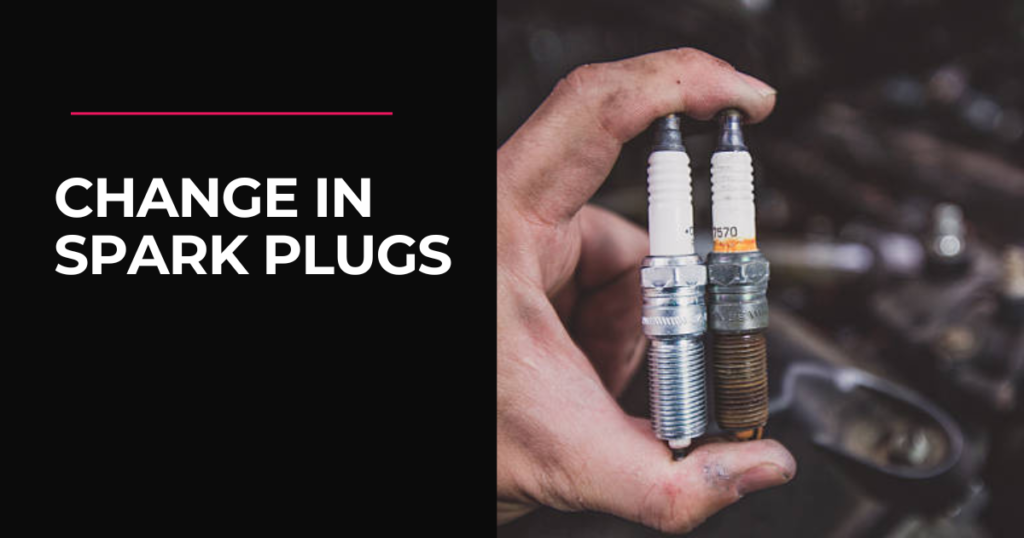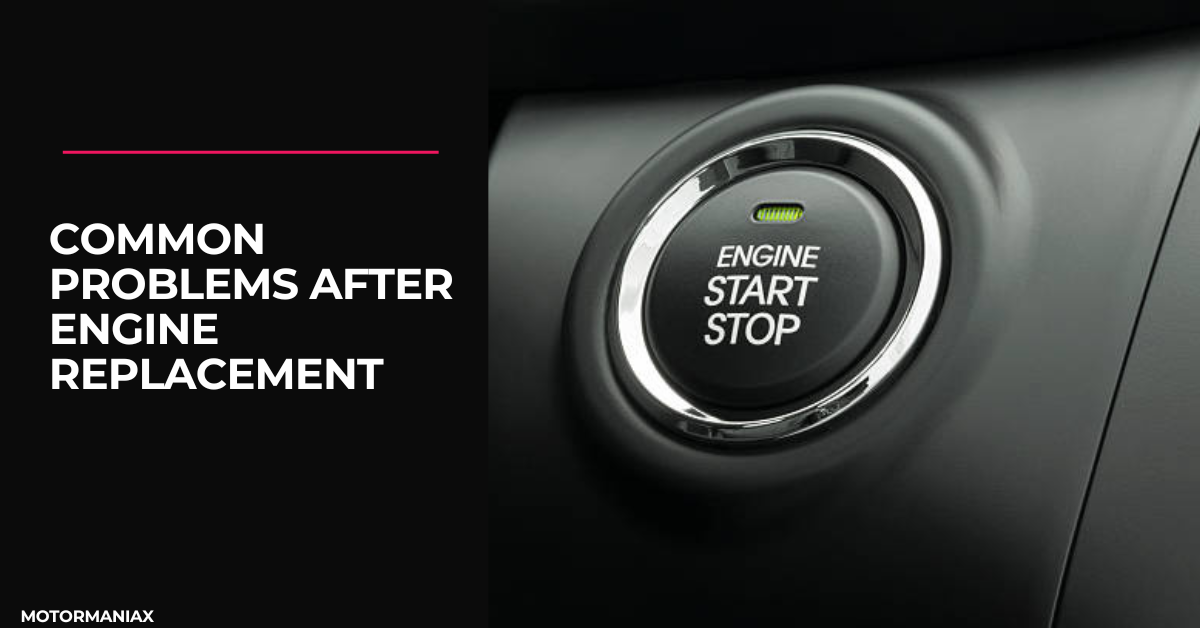If I say the engine of the car is its most important component it won’t be any wrong. But sometimes it malfunctions even after replacement. Why does it happen? What are the common issues? This article is all about that.
If you have recently changed your car engine and are facing a problem, you’re not alone. Sometimes you see problems after a car engine and it’s pretty much normal.
So, in today’s article I shall tell you the common problems after engine replacement that may occur at times.
6 Common Problems after Engine Replacement
There are six most commonly seen problems that occur after car engine replacement. The good part is all the problems are easy to spot and you can certainly work on its repair right after the signs. Here are the common problems.
Smoke
You may see the smoke coming out the backside of the car. After engine replacement this problem black smoke means that your car is working on excess fuel and air mixture. This happens when the filters are dirty and blocked. Blue smoke means the engine of the car is burning with lubricating oil and there is a leak.
Odd noise
There can be odd noises after engine replacement. This is one of the most common issues but it’s solvable. The sound can be either too loud or smooth, depending on which car model you have. You may hear knocking, clicking and other such noises from the car. Usually it’s because of no oil and dirt.
Overheating
After engine replacement overheating is another common problem. Before you restart the car it is suggested to turn off the car for engine cooling down. Usually it’s the engine radiator fault. However, you should take the car to the professional for an exact solution.
Car does not start

There are instances when a car would refuse to start after engine replacement. And it’s common. It can be due to poor belt or issue in the ignition timings. If spark plugs are faulty the car would not start.
Also Read: My Car Starts Sometimes and Sometimes It Doesn’t
Electrical problems
Electrical problems also happen after the engine replacement. This is because of damage or below-par electrical circuits. It can also promote related electrical parameters including sensors, blown fuses. So the fine electrical system in the car is important.
Changing the color of spark plugs

This happens due to change in gasoline engines. So if the spark plug of your car is either dry black or wet black it means the fuel injector is faulty. This Is due to dirt and blockage in the filter.
Read More: How to Tell If a Spark Plug Is Bad
What to do after engine replacement?
While you should be happy about getting a new and better car engine, there are other things that you should do after an engine replacement. For instance start the engine and leave it on till it gets warmed up.
After that turn off the engine and let it cool. If there are no signs after the temperature hike up, take the car for at least 40 miles of driving. If either of the following components is faulty, replace it:
- Timing belt or chain
- O-rings
- Gaskets
- Seals
- Sensors and relays
- Water pump
- Spark plugs
- Thermostat
- Oil filter
- Air filter
- Water hoses and vacuum lines
- Exhaust manifold
- Fuel pump
- Camshafts
- Crankshafts
- Pistons and rods
Transmission problems after engine swap
Transmission problems after engine swap are not uncommon. Transmission problems after engine swap can be costly, but it is not something that isn’t curable. Now, most of the cars have different types of automatic transmissions.
The sad part is they are likely to get damaged due to various reasons and are not very durable. So after engine swap, transmission problems may occur.
When the older engine of the car gets off for replacement, the tranny gets disconnected too. Therefore, it needs a newer installation altogether. As it sounds, it is an important and complex step.
The reasons for transmission problem after engine swap are:
- Damaging one of the bolts or thread
- Electrical issues
- Damage torque converter
- Damage components
- Incorrect connection to the engine
- The transmission was damaged when fastened
- Something wasn’t connected properly.
- No fluid or contaminated fluid in the transmission
- Incompatibility incorrect installation during engine swap
Pros and Cons of Replacing Car Engine
There are few pros and cons of replacing the engine of a car. Here what they are:
Pros
- Robust car performance with zero malfunction
- Best durability of the car and component longevity
- Reliable and new warranty
- More capabilities without major changes
- You get optimal resale value
Cons
- It can be costly
- Sometimes it can damage car/components
Does a new car engine make your car last longer?
Replacing the older components of your car increases its efficiency for sure. For a car engine, if you replace it due to some fault, it will certainly maximize the performance and add durability to it.
However, it’s important to note that the original engine of the car is capable of lasting more than upwards of 100,000 miles. So it is directly linked with added durability of the car. However, you need to keep up with the maintenance of your vehicle to make sure it’s ideal performance.
Conclusion
When you replace a car engine, problems may make their way due to adjustment and sync parameters. Therefore, you should always make sure to opt for the compatibility in buying and replacing the car components.
We mentioned what to do after engine replacement and hopefully when you replace the faulty component it solves the major issues. Remember, the engine of the car is crucial to be in right performance but due to its sensitivity, always take professional help!


9 thoughts on “Common Problems after Engine Replacement [Explained]”